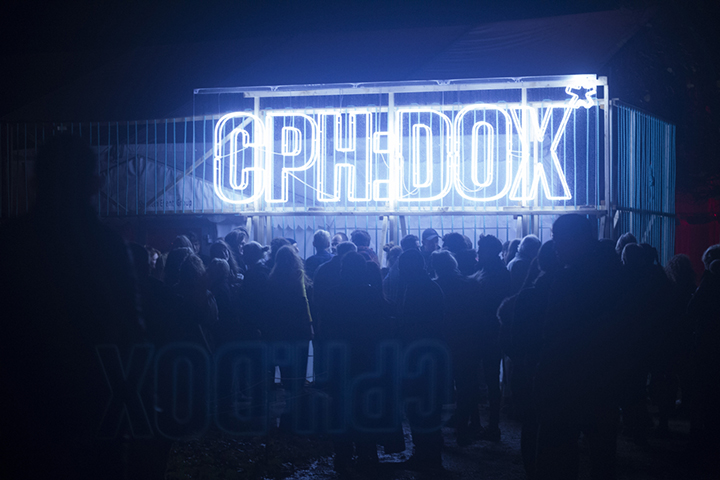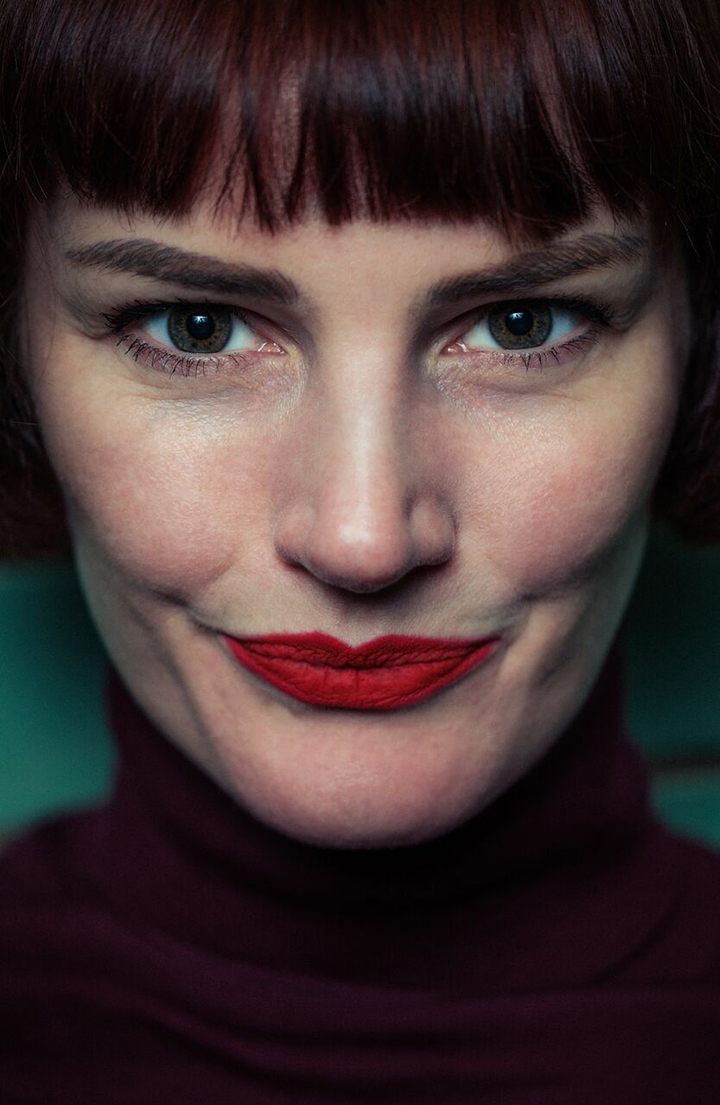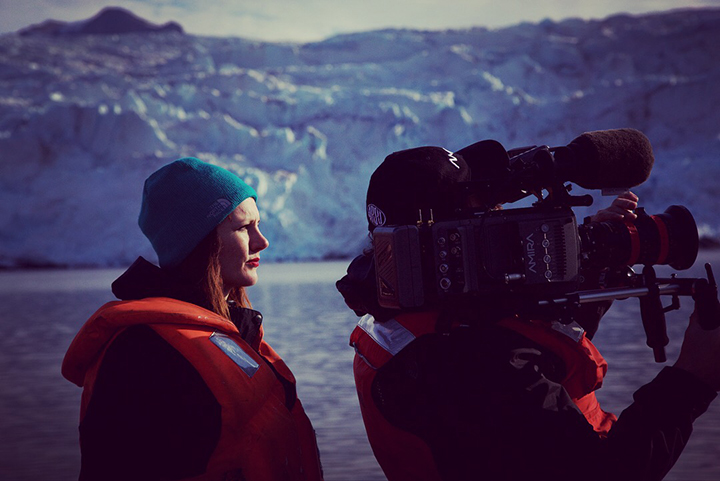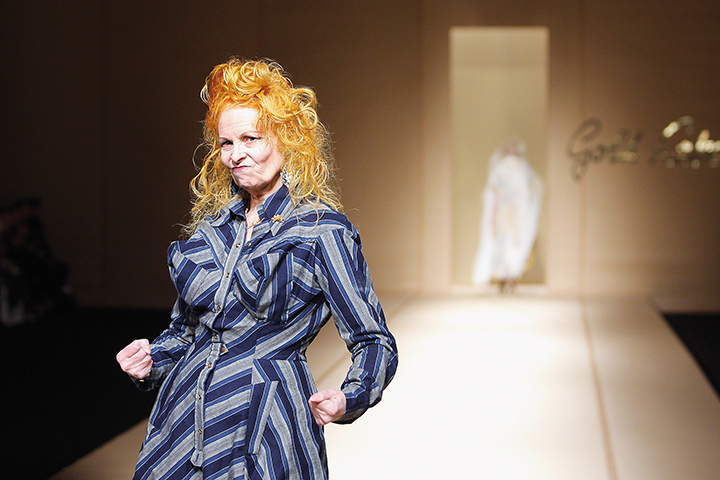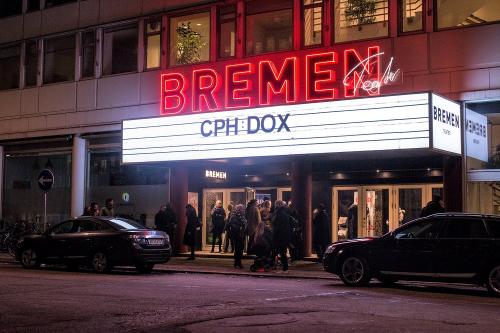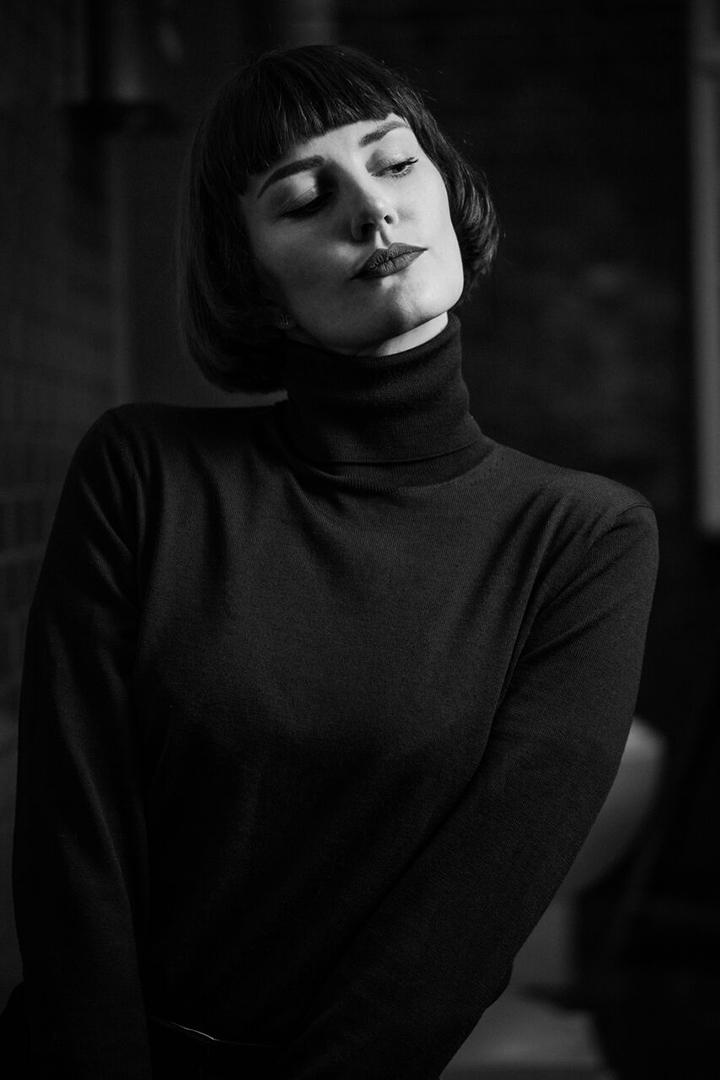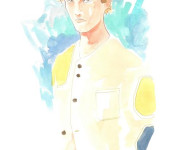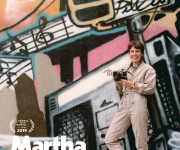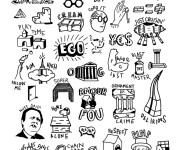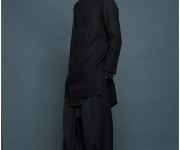Being one of the largest documentary film festivals in the world, CPH:DOX – Copenhagen International Documentary Film Festival – has been expanding by presenting a vibrant program that goes beyond traditional boundaries between disciplines and media. CPH:DOX brings works of major international directors the same as emerging talents that are striving to have a direct impact on social context. During the festival, Lorna Tucker, a British filmmaker, presented her feature documentary ‘Westwood: Punk, Icon, Activist’ to the international audience. SwO Magazine had a great chance to be part of this festival and have a warm talk with an artist that is aiming to inspire people by showing the complicated life story of the legendary fashion icon Vivienne Westwood.
You spent your 20’s jumping on tour buses together with music bands, creating videos and promotions. Tell us about that moment when you decided to move into the long-form storytelling?
Yes, I was working with bands, brands, basically, anyone that let me be a bit silly. What is funny, that there was never THAT moment. I have written stories since I was a child, I always wanted to be a writer, but I never had the confidence. I was dyslexic, didn’t go to school; when I was at school – I didn’t learn much. I didn’t stick to any educational system because I find it quite difficult. I had so many exciting life experiences that I wrote about, and I wanted to do something with that… And it was only through working with bands when I would get hyped to film on a tour bus because I started seeing characters coming out when people forgot that I shoot them. I broke down those barriers and got into telling things the same as in writing but on camera – filming even sad moments, putting it together and making a bigger story.
For me, it came accidentally through working with bands, meeting people, travelling, seeing different things that are happening, like genuine stories of women suffering abuse. And that was when I said that I am really going THIS way because no one is talking about it, no one is discussing, and nothing is changing. Therefore, I am going to film it and find a fun way to tell this to the world!
Did the hectic lifestyle, while touring with music bands, influence the style of your projects?
Absolutely! People think that sound drives me in the way I edit films, but it’s not. While touring with bands, you must be quite tough. As a woman you have to be a bit silly – you have to be one of the boys. Experience of travelling so much with bands gave me the different way to tell a story. It taught me that kind of fun sense.
I always want to show the real personalities that I meet. When I get to know them – they are funny, they are passionate, they are confident, they are insecure – they are real people often having completely different images in public. I wish others could see that as well! What drives me the most in making films, is showing those sides that no one ever has seen and help to relate to them.
It seems that you are actively aware of social issues, but what is more valid for you as a filmmaker: the process or a final product?
When you see a film – you are watching life through my eyes. When I decide to go for it and make a piece about someone, I have to become their confident best friend, and that’s hard because they get me as a filmmaker. It is not selling part of my soul but making myself very vulnerable. And it is not fake! When I create a film, I wear my heart on my sleeve; I fall in love with whoever the person is deeply and hold the story close enough to talk about it. What I also bring to the film is the exclusivity and delicate relationship. The other film that is coming out this year, ‘Amá’, is my journey discovering the deepest and darkest sterilization abuses that were going on in Native American communities from United States government. That was even traumatic, falling in love with those people and feeling it. I torment myself way more than I should, but these films are my experience.
How did Vivienne cross your path and why did you decide to make a documentary about her?
Well, I worked with her a bit in the past. We’ve done little collaborations together and when the cameras were off Vivienne was talking about little snippets of her life and giving me some advice. I just found it so inspiring, and I thought that this needs to be on camera! She is an incredibly forceful woman and what an inspiring story she could tell for a young woman, or man, or anyone around the world that is striving to make something independently – to show them the reality, how hard and unforgiving it is. Also, through her life, I could see every life lesson that each of us could learn. It is so lovely to see that people are talking about it after we released the film. That means it can really touch someone.
Vivienne is well known as a punk icon, businesswoman, designer, and as an activist. Was there a specific side of this outstanding woman that you wanted to highlight the most in this movie?
I wanted to create an intimate portrait of an artist, make her relatable and inspire people by showing crisis and vulnerability, the passion and frustration. I wanted to show everything that makes us human and break down this myth of Vivienne being a bird in a golden cage or being this ideal celebrity that is so unlike us, so magical, so mythical… I just wanted to reveal that as an incredibly talented woman she has consistently been laughed at and been bullied, but that never made her stop! So, this story is about the woman that overcome it all.
Since you two spent quite a lot of time together, do you recognize some personal traits that you and Westwood both share?
I see in everyone that I know a bit of her. What I don’t see, and I think that people can learn from her is that craziness which I have as well. I don’t stop when reality shows that I need to stop. We all have those moments of crisis, and I wanted to show that even Vivienne had it and what it takes to overcome it all. She never gives up! So, I think we share that similarity of relentless of not stopping. As people and especially artists we also have a lot of differences in a way we relate the information and create a particular message, and that inspired me too.
What was designer’s opinion about the portrait that you captured?
You see, I do not work for Westwood. When I decided to make a film on her, I knew it must be relatable. We made a film that I am incredibly proud of, and I think it’s a great portrait of this woman, but she is a creative person herself, and she has a very different way of telling stories the way than I do. So, anything, which she was deeply concerned about, we completely consulted and took it out, but when it comes to a creative part of edit – I had to retain the director and tell the story that wasn’t driven by the particular message. I wanted to show that she has always been a punk, and always been an activist and what is the fashion to her, whereas I think she expected a film to be more like telling people what to do and talking about particular environmental causes. Even though Vivienne decided not to promote this film by herself, all of her family members and closest friends loved it.
2018 Sundance Film Festival highly acclaimed this film the same as CPH:DOX viewers. What obstacles tried to prevent you from achieving this success?
We had lots of challenges. First of all, there was a problem of finding funding and the budget was way smaller than you can imagine for Westwood’s profile. Second, I was with my third child on the way, and I was struggling to find money for childcare. And I couldn’t just go for 9months maternity leave, because it’s not how the industry works when you work on the independent project! So, I was raising kids and even the youngest one on set. At that time, the camera bag was full of napkins and baby wipes together with sound recording equipment. We didn’t even think to stop because people just started trusting us, so we just carried on. We didn’t even realize how crazy it was! Now my daughter is growing up as an extremely sociable person because of it, but that was very hard to overcome. I also think it is tough to overcome it emotionally without anyone putting any preconceptions because as a woman you are scared of being looked up as being not able to handle something because you have kids and you just got a baby. Emotionally and physically it was very exhausting and hard to overcome so I am very thankful to Eleanor for being not only a producer, but also a creative partner, therapist, and childminder.
This film was titled Westwood: Punk, Icon, Activist. Let’s say that we are creating a documentary about you. What three words would you pick to describe yourself?
Well, I want to inspire people, and I see myself more as an artist than a filmmaker. Also, word ‘clown’ comes from working a lot with men and acting that silly one, so I would choose Artist, Mother, and Clown.
Media claims that today is the golden age of documentaries. What are your thoughts about that and how do you think this genre might alter in the future?
It is a very exciting time to be a filmmaker because people are allowed to be more creatively free. Talking about past few years, I have witnessed of being in this niche and could honestly say that documentary is becoming more accessible to a broader audience. For me, it is definitely a golden age of documentaries.
Talking about the future, I don’t know… I think it is going to be more like an experience for people with all film and art. They will want to be sitting there and feeling and smelling. With the technology that we have out there, there will be so many interesting projects done! However, I am not going that direction because I am like an old-fashioned filmmaker. Technology is going so far beyond thinking, while I am almost retreating and saying that I want to shoot projects on films and analogs. I don’t have that desire of going to Virtual reality or 3D, but that’s where the world is going, and I am so excited to see what is coming next!

